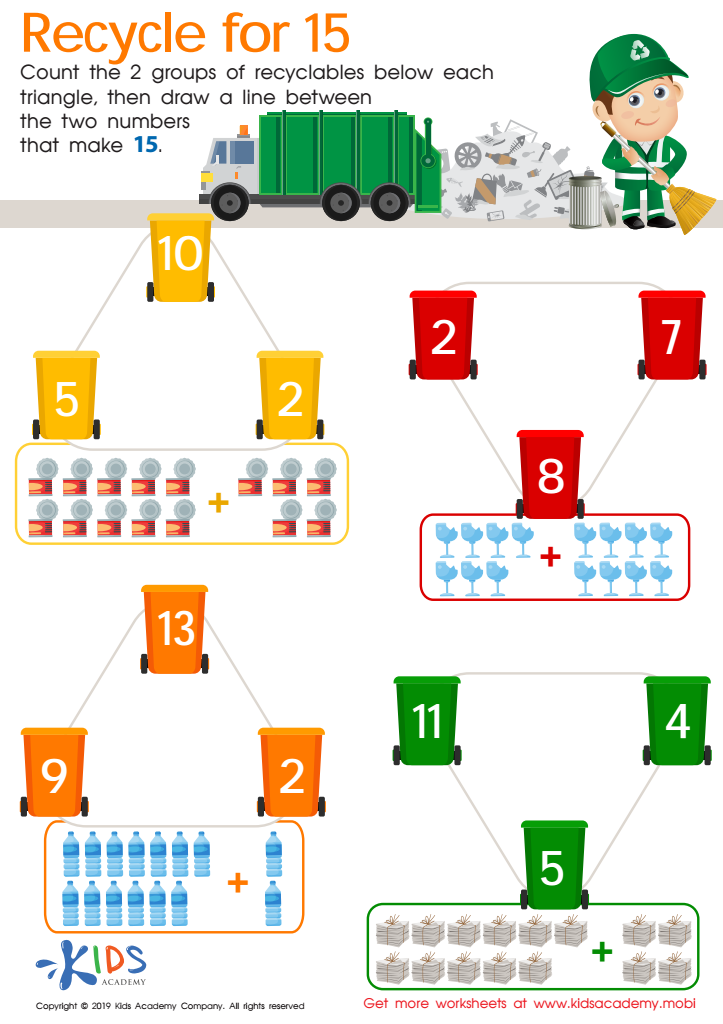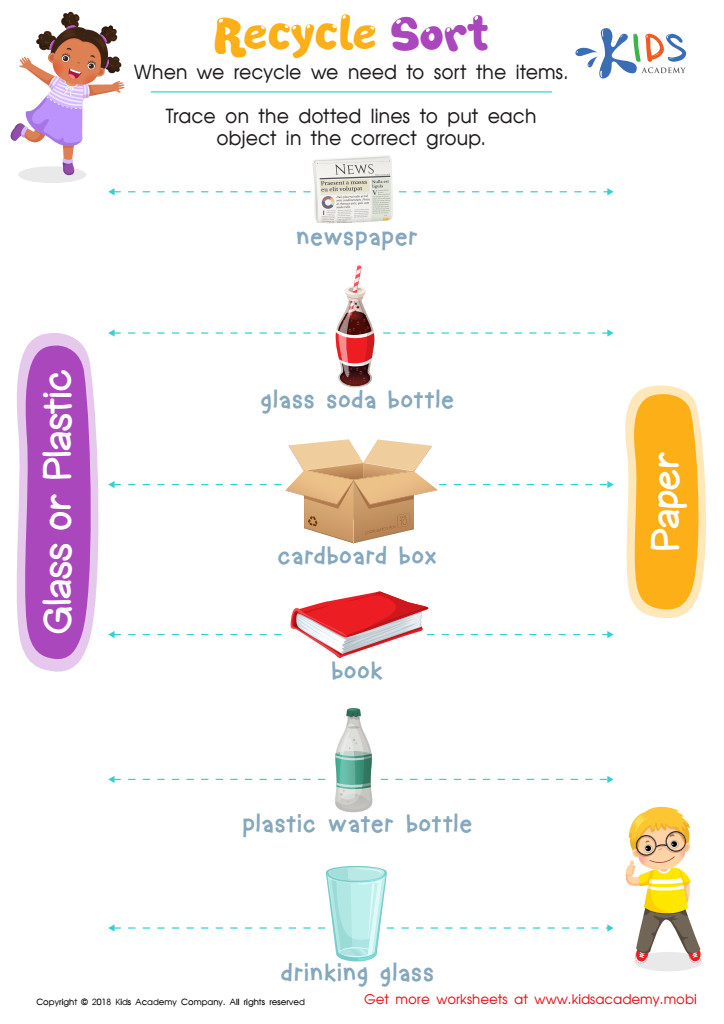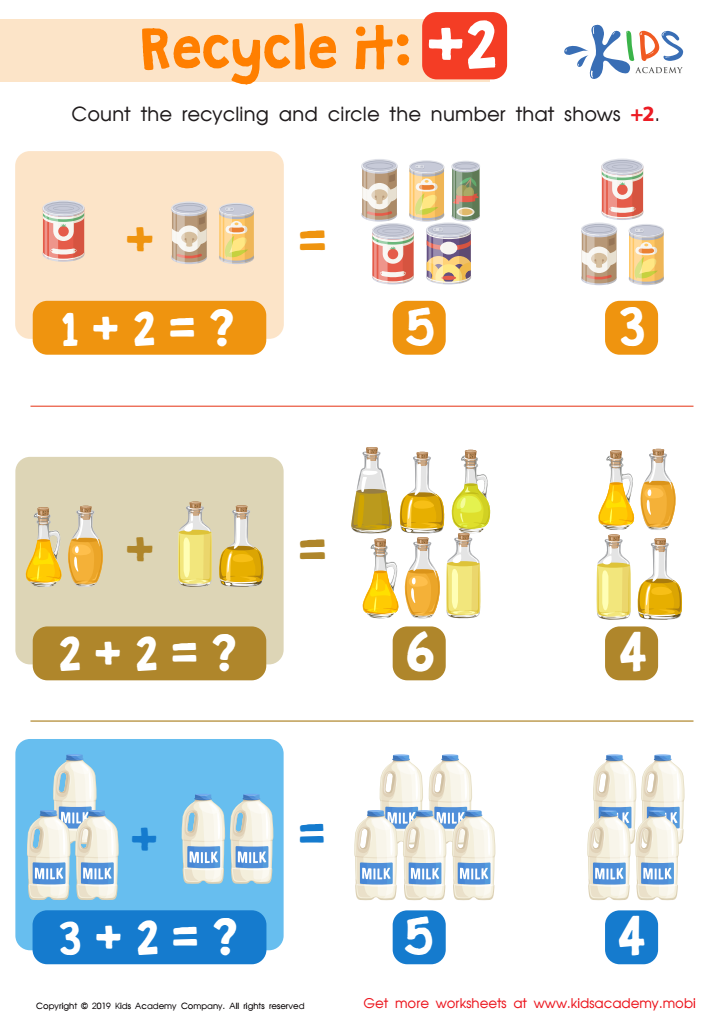Environmental awareness Math Worksheets for Ages 3-5
3 filtered results
-
From - To
Discover our engaging Environmental Awareness Math Worksheets designed for ages 3-5! These interactive worksheets blend early math skills with environmentally-themed activities, helping young learners understand their impact on the planet. Each worksheet features fun illustrations and simple math exercises that promote recycling, nature appreciation, and eco-friendly habits. Perfect for home or classroom use, these resources encourage foundational counting, shape recognition, and problem-solving skills through the lens of environmental stewardship. Inspiring a love for math while fostering awareness about the environment, our worksheets are an excellent way to educate children about caring for our world in a playful and engaging manner. Download yours today!


Recycle for 15 Worksheet


Recycle Sort Worksheet


Recycle It: +2 Worksheet
Environmental awareness math for children aged 3-5 is crucial for fostering a generation that values sustainability. At this age, children are naturally curious and start to understand their role in the world around them. Integrating environmental concepts into early math lessons not only enhances their numeracy skills but also instills a deep appreciation for nature and ecological responsibility.
By using everyday items from the environment—like leaves or stones—for counting and sorting exercises, children begin to connect math concepts with the world outside their classroom. For instance, they can learn measurement by comparing different plant sizes or practice addition by counting animals in books that feature wildlife. This hands-on approach promotes problem-solving and critical thinking.
Moreover, engaging young learners in environmental awareness fosters a sense of stewardship. As they become aware of issues like pollution and conservation, they learn that their actions have consequences.Teachers can leverage this knowledge to teach math while inspiring respectful attitudes toward the planet.
Ultimately, helping children grasp these connections early on equips them with the skills to think critically about environmental issues, making them informed citizens who prioritize sustainability as they grow. This valuable integration of subjects enhances their learning experience and broader worldview.
 Assign to My Students
Assign to My Students



















